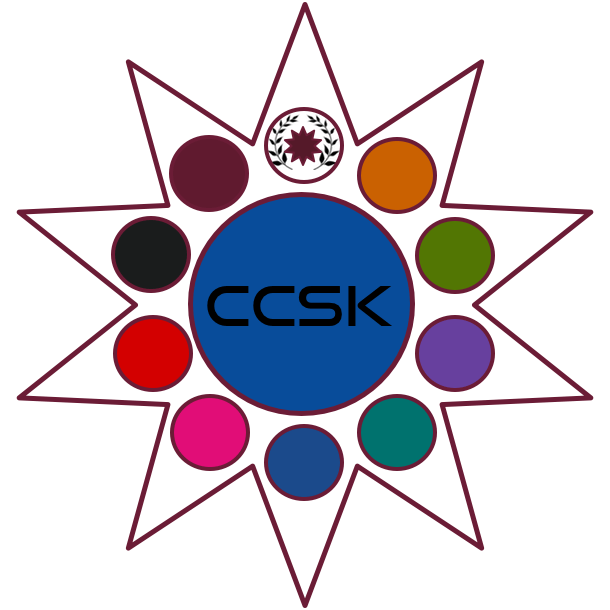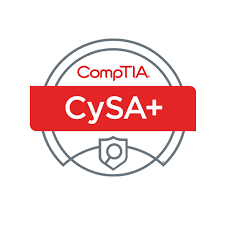Description
We deliver training live-on-line, on site, and on demand.
This course is a practical way to demonstrate knowledge and advance a career in Cloud Security and as a system administrator. Students will become cybersecurity professional community members. Practice in this course will lead to excellence in cybersecurity.
It shows students have what it takes to implement different security concepts from an information security program that includes cloud technologies.
The actual certification exam will be easier than the course practice exams.
If your organization would like this course at a particular time or location, it is available for groups greater than 8 with a contract.
This course addresses 3 certifications CCSP, CCSK, and Cloud+
- CCSK V4 – Certificate of Cloud Security Knowledge
- Governing Body: Cloud Security Alliance – https://ccsk.cloudsecurityalliance.org/en
- External exam costs: $395 (2 attempts) in United States
- Cloud+ V2
- Governing Body: CompTIA – https://certification.comptia.org/certifications/cloud
- External exam costs: $302 in United States
- CSSP – Certified Cloud Security Professional
- Governing Body: (ISC)² – https://www.isc2.org/Certifications/CCSP
- External exam costs: $599 in United States
Price does/does not include any exams.
Security / Managerial / Technical / Certification
This course fulfills NICE/NICCS Categories and Roles:
- Operate and Maintain (OM) System Administrator OM-ADM-001
We expect every student to achieve the knowledge, skills, and abilities necessary to develop, implement and support cloud security with consideration of the enterprise security program. Each student will be able to understand the regulatory environment surrounding their cloud implementation including: GDPR, FedRAMP, and PCI.
As a side benefit of the course, students will pass the exam and validate their skills as a cybersecurity professional via certification.
- Identify and use computer networking concepts, protocols, and network security methodologies.
- Understand basic risk management processes.
- Execute secure network administration principles.
- Distinguish and differentiate cyber threats and vulnerabilities.
- Configure and implement virtual machine and basic virtual network environments.
- Configure and implement client server operating systems of both Linux and Microsoft.
- Knowledge and skills necessary to troubleshoot, install, operate and configure basic network infrastructure.
- Students will have an advantage if they have taken a basic administration course for their particular platform such as: AWS SysOps or Microsoft. Not required.
Upon completion of the course the student will be able to: Implement a hybrid cloud structure, secure a cloud environment, understand and overcome the unique challenges cybersecurity professionals have in a cloud environment, manage an outsources cloud environment, understand and overcome security challenges for the cloud, and design a control system that conforms to STAR & CCM
- Security, Trust & Assurance Registry
- Cloud Controls Matrix
1. Business Issues
Cloud Governance
Trust & Regulatory Issue
Incident Response
Business Continuity, & Disaster Recovery
2. Fundamentals
Introduction to Cloud Computing
Concepts, Technology & Architecture
Methodology, Systems & Applications
Cloud Services from a Business Perspective
Design, Implementation & Technologies
Moving to the Cloud
Impact & Changes on IT Service Management
Principles & Paradigms
Cloud Economics
3. XaaS
Cloud Computing Service & Deployment Models
Understanding PaaS
Programming for PaaS
Enterprise Manager Cloud Control
Service-Oriented Architecture
Private Cloud Computing
Security as a Service
4. Services
Data Center Operations
Enterprise Cloud Computing
Designing Networks & Services for the Cloud
Mobile Networks & Cloud Computing Convergence
eCommerce in the Cloud
Capacity Management
5. Virtualization
Virtualization Essentials
Oracle
VMware
Microsoft
Information Storage & Management, Virtualized, or Cloud
Virtualization Technologies in Libraries
6. Hybrid
Software Reuse
Data-Intensive Computing & Scheduling
7. Platforms
Amazon Web Services
Windows Azure
OpenStack
Google App Engine
Apache CloudStack
Migrating your Application
8. Security
Information Management & Data security
Risks & Consequences
Cloud Computer security Techniques
Cloud & Privacy
Security Engineering
Interoperability & Portability
Securing Cloud Services
Identity, Entitlement, & Access Management
Cybersecurity & Forensics
Encryption & Key Management
9. Development
Successful Adoption
Application security
Software Testing in the Cloud
Mobile Application Development
Cloud & Database Development
Developing Applications on a Cloud Platform
Cloud Architecture Patterns
All courses are available in live-on-line format.
Technical labs will require basic skills in operating systems and virtualization. This course contains 15-40 hours of lab work.
There are 10 different methods of possible exercises used throughout the course in one-hour class meetings. As soon as students become accustomed to a particular flow, or they get comfortable, the instructor will switch methods. Some examples include: WOOTINLTOO, case studies, risk analysis practice, and Tooltime review.
Before class students will complete mindmaps, assigned readings, take practice quizzes, submit case study information, and build flashcards. Each activity is graded as needed.
Since cloud concepts are changing weekly, we have developed a dynamic course content. This text covers the latest cloud computing, current state of security and technology. All students are required to have a working computer, microphone, and earbuds.
- 1 hour per session
- 3 sessions per week
- 10 weeks with 2 break weeks (also called ‘dark weeks’)
- Orientation is held for 90 minutes before first live class.
- Class meeting times are listed on the public calendar.



